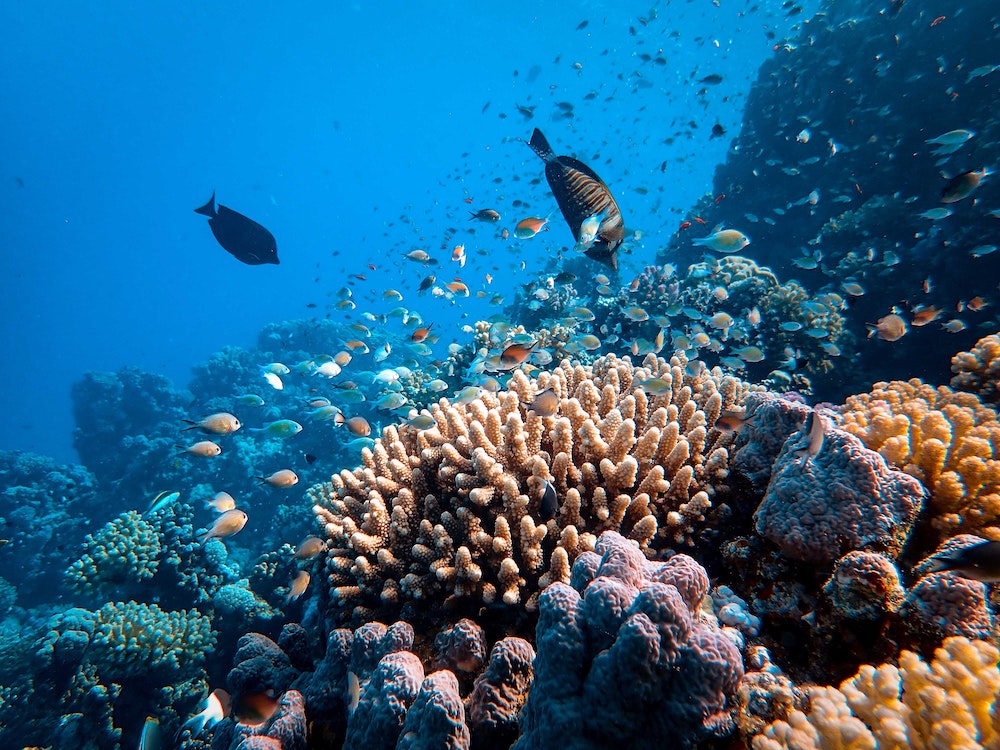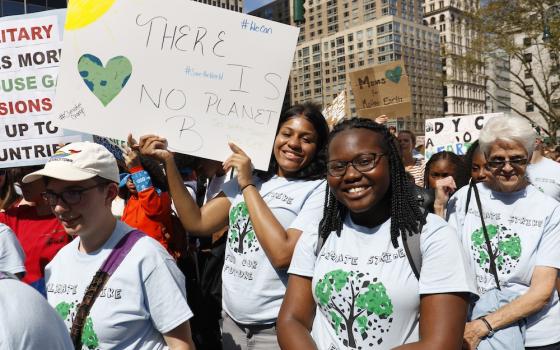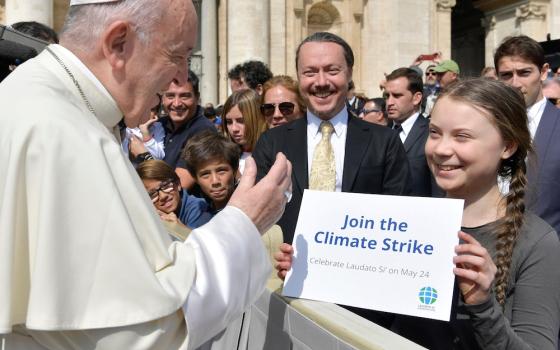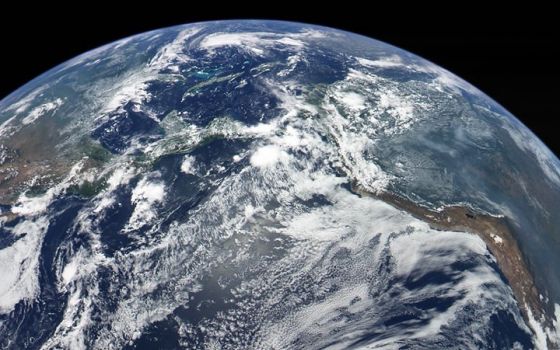
(Francesco Ungaro/Unsplash)
Editor's note: In his Lenten "Reflections on the Care of Creation," Fr. Emmet Farrell examines our impact on the planet and our responsibility, as people of faith, for our common home. You can sign up here to receive Fr. Farrell's reflections in your inbox every Monday, Wednesday and Friday from Feb. 17 to April 2.
See:
Since the 19th century, the Earth has warmed by 1 degree Celsius. Studies have found that oceans have absorbed 90% of excess heat from our planet, and it's starting to show, with water temperatures rising rapidly. This all adds up to one thing: Our oceans are in crisis, and our climate along with them.
Climate change is causing oceans to become more acidic, and "researchers predict that with increasing levels of acidification, most coral reefs will be gradually dissolving away by the end of the century," writes Matt Warren for Science. Scientists say that a 1.5-degree Celsius increase in temperatures is likely to result in very frequent mass die-offs of coral, while with a rise of 2 C, coral reefs would largely disappear.
For Australian coral reef expert John "Charlie" Veron, the slow death of his beloved Great Barrier Reef, as a result of climate change, is a warning for the entire planet. "Somewhere between a quarter and a third of all marine species everywhere has some part of their life cycle in coral reefs," he told Rebecca Wright and Ivan Watson of CNN. "So, you take out coral reefs and a third to a quarter of all marine species gets wiped out. Now that is ecological chaos, it is ecological collapse."
Advertisement
Judge:
[C]oral reefs [are] comparable to the great forests on dry land, for they shelter approximately a million species, including fish, crabs, mollusks, sponges and algae. Many of the world's coral reefs are already barren or in a state of constant decline. … This phenomenon is due largely to pollution which reaches the sea from deforestation, agricultural monocultures, industrial waste and destructive fishing methods. (Laudato Si', 41)
Care for nature is part of a lifestyle which includes the capacity for living together and communion. (Laudato Si', 228)
"Praise the Lord from the earth, you great sea creatures and all the ocean depths, lightning and hail, snow and clouds, stormy winds that do his bidding, you mountains and all hills, fruit trees and all cedars, wild animals and all cattle, small creatures and flying birds." (Psalm 148:7-10)
Act:
- Try to imagine what it would be like if most of the living plants and animals around you began to die.
- Make one change in your activities that reflects care for nature as part of your lifestyle.
- Consider working with the Stewardship Ministry or the Creation Care Ministry or other climate change movements at your parish or school.





